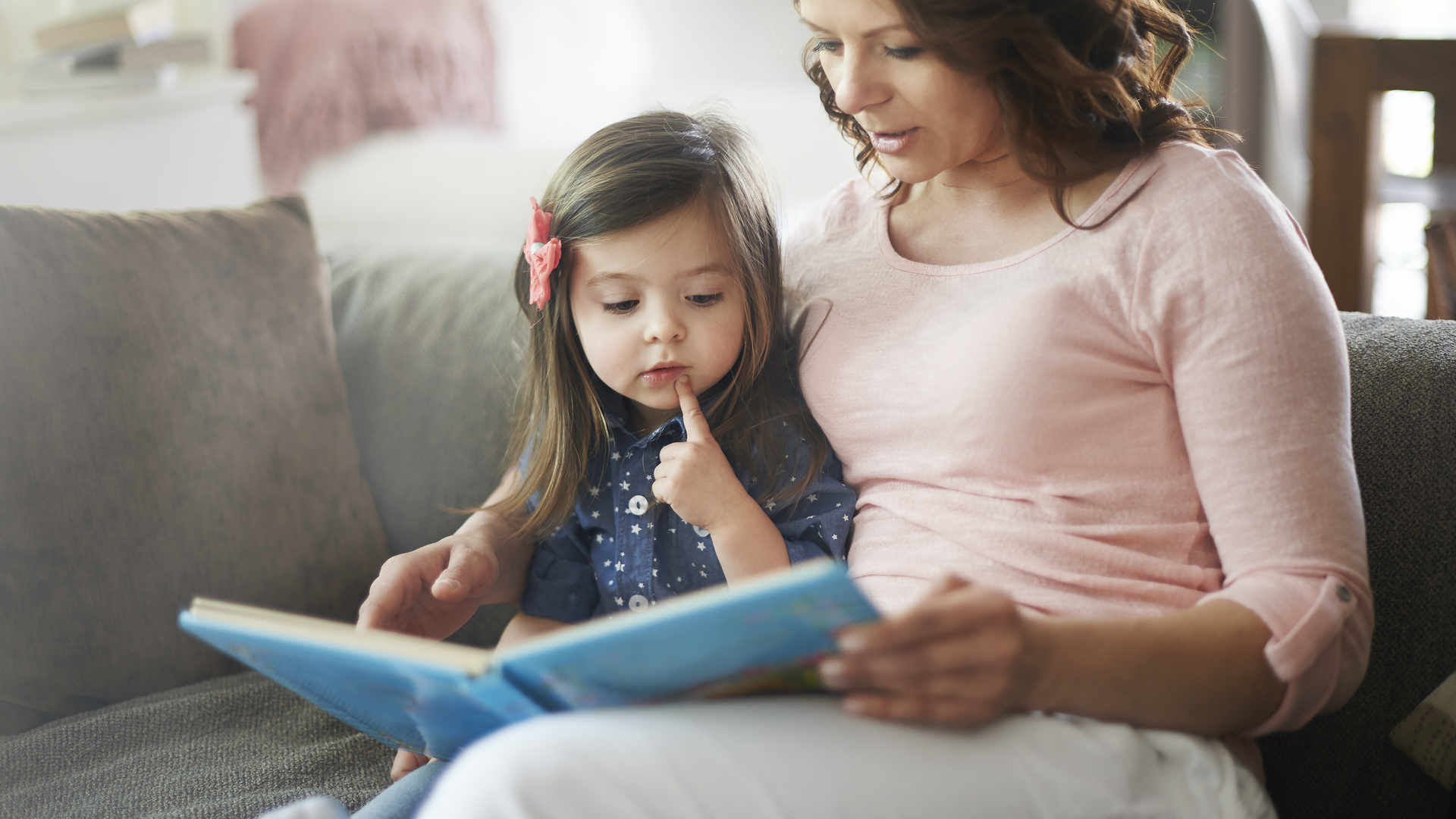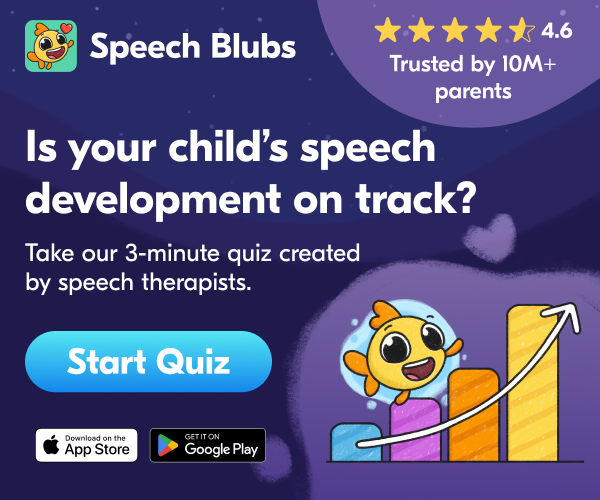Reading vs. Adult Communication
Reading is excellent for so many different skills beyond speech and language development. It works on attention, comprehension, vocabulary, turn-taking, and fine motor skills such as pointing.
My Children
As a parent, my children couldn’t be more polar opposites when it comes to reading books. My daughter LOVED cuddling with us before bed and reading several books as part of her bedtime routine. Her highlight of the night was when she was old enough to pick the books herself. In fact, at three years old, she still requests that we read to her every night before bed.
My son . . . oh boy, my son is so not into reading. Maybe it’s because he’s a boy? I don’t know. Is it because he finds me boring? Probably. At 10 months, all he does is push it away or try and eat the edges. Please tell me I’m not the only one!

At first, I stressed about the fact that he won’t sit with us to read. Then, I thought about it more and more. I make up the time that he missed reading, by playing with him and communicating with him more throughout the day!
I am probably a little bit crazy when it comes to labeling and telling him whatever everything is, BUT I want to make sure that he is getting all of the words and descriptions that he will need to start formulating words in a few months!
My Kid Hates Books. Now What?
So what happens if your baby isn’t a fan of books? A recent study looked at reading versus just conversing with your child. Does it make a difference? Is one more important than another?
A study of 275 families with children aged 0-4 was designed to test factors that contribute to the language development of infants and toddlers. Participants' exposure to adult speech, child speech, and television were measured using a small digital language recorder or processor known as the 'LENA System.'
This innovative technology allowed researchers to hear what was truly going on in a child's language environment, facilitating access to valuable new insights.
The study found that back-and-forth conversation was strongly associated with future improvements in the child's language score. So yay!
If we just talk to our children, we are building and shaping their future language use!
All of the Words!
Each day, children hear an average of some “13,000 words spoken to them by adults and participate in about 400 conversational turns with adults” (ScienceDaily).
More conversations mean more opportunities for mistakes and so more opportunities for valuable corrections. Furthermore, they also provide an opportunity for children to practice new vocabulary.
What Should Parents Do?
Parents should be encouraged not only to provide language input for their children through reading or storytelling but also to engage their children in two-sided conversations, the study concludes.
It’s ok if your child can’t totally respond or participate fully; as long as you are giving them a chance to respond.

That give-and-take in a conversation teaches them that you are expecting some sort of response – whether it's through gestures or verbally.
"Talk is powerful, but what's even more powerful is engaging a child in meaningful interactions – the 'give-and-take' that is so important to the social, emotional, and cognitive development of infants and toddlers," says Dr. Jill Gilkerson, Language Research Director at the LENA Foundation and a study co-author.
Bottom line – both reading and conversing are important! Neither should be done on their own. If your kid isn’t into reading, that’s ok! They might just need some time to get into it! Keep trying every day and keep having those awesome conversations!
 By Stacie Bennett
By Stacie Bennett

